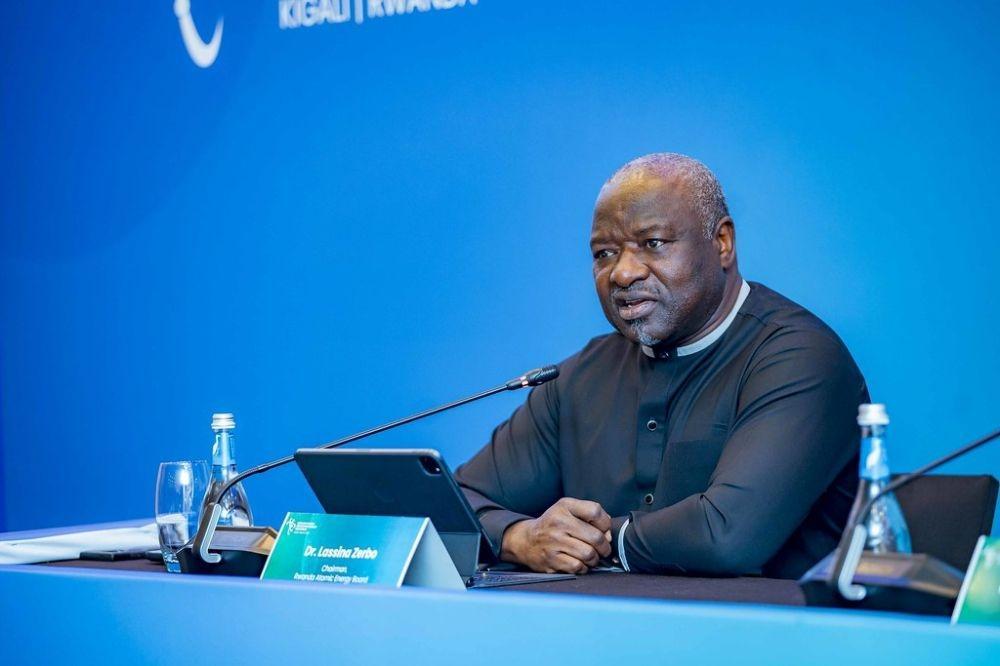Africa-Press – Rwanda. MOSCOW — Rwanda is turning to nuclear energy through small modular reactors (SMRs) as it seeks to accelerate industrialisation and secure a stable power supply for its growing economy.
Lassina Zerbo, Chairman of the Board of Directors at Rwanda Atomic Energy Board, said this on the sidelines of the World Atomic Week, the largest global gathering dedicated to nuclear and related industries, held in Moscow, Russia, from September 25–28.
“People ask me, ‘Rwanda has solar power and hydropower, so why nuclear?’ My answer is simple—show me one big industry that runs entirely on solar. Industrialisation cannot rely on intermittent sources like solar or wind,” Zerbo told The New Times.
“If Rwanda wants to leapfrog in socio-economic development, we need a stable, reliable, and clean source of energy. That’s where nuclear comes in.”
While most SMRs are still under development globally, Rwanda is already working to build local expertise.
According to Zerbo, the goal is to have the first reactor by the early 2030s, timed to meet the growing energy demand.
Unlike conventional nuclear power plants that require vast amounts of land and extensive safety buffers, SMRs are smaller and more adaptable, Zerbo noted.
“Micro-reactors are even smaller—fitting into a 40-foot container. One micro-reactor could power up to 3,000 families continuously for 16 to 20 years without maintenance. That’s a quick win for countries like ours,” he added.
Although financing and regulatory frameworks remain a challenge for nuclear projects worldwide, Zerbo said Rwanda is working with global partners to address both.
“The World Bank, the African Development Bank (AfDB), and others are shifting their stance to support nuclear projects. With private-public partnerships, this will be possible,” he said.
Andrey Rozhdestvin, Director General of Russian nuclear energy corporation Rosatom Energy Projects, said it was recently announced that global nuclear capacity should double by 2050, with about 25 per cent expected to come from SMRs.
Additionally, he pointed out that SMRs are well-suited for specific industries and remote regions.
“The vision is to use SMRs as a starting point for countries new to nuclear, then gradually move to large-scale power plants,” he said.
“That way, countries can start generating electricity earlier while building the infrastructure and financing for bigger projects.”
For More News And Analysis About Rwanda Follow Africa-Press






